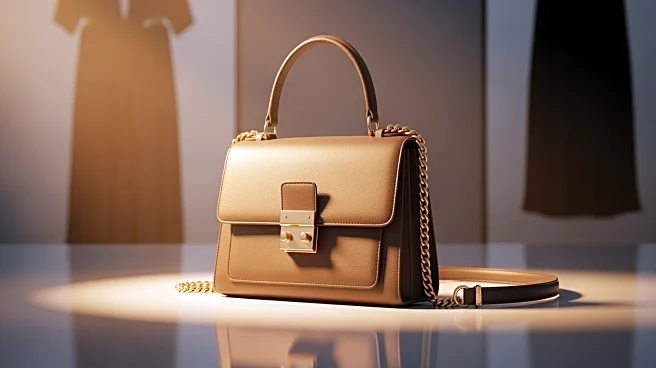What's Happening?
Kering, the French luxury group, reported a 5% decline in overall group sales for the third quarter, with its flagship brand Gucci experiencing a 14% drop. Despite this, the results exceeded market expectations, which had anticipated a 9.6% fall in group sales and a 15%
decline for Gucci. This marks the seventh consecutive quarter of double-digit declines for Gucci. The company's new CEO, Luca de Meo, who joined in June, is tasked with turning around the brand's fortunes. Under his leadership, Kering's shares have risen by 85%, significantly outperforming the STOXX Europe Luxury 10 index. The company is focusing on restructuring and refocusing on core fashion, with recent improvements noted in the Chinese market.
Why It's Important?
The performance of Kering, particularly Gucci, is a critical indicator of the health of the luxury fashion sector. The better-than-expected results suggest a potential turnaround for the company, which could influence investor confidence and market dynamics. The luxury sector has been under pressure due to economic uncertainties and changing consumer behaviors, especially in key markets like China. Kering's strategic moves, including the sale of its beauty arm to L'Oréal, indicate a shift towards streamlining operations and focusing on core strengths. This could set a precedent for other luxury brands facing similar challenges.
What's Next?
Kering's future actions will likely focus on further restructuring and strategic sales to improve financial health and market position. The company has signaled potential additional deals, which could reshape its business model. The luxury market will be closely watching Kering's performance in China, as improvements there could signal a broader recovery in the sector. Investors and analysts will also be keen to see how Kering's strategies under de Meo's leadership will impact long-term growth and profitability.
Beyond the Headlines
Kering's decision to divest its beauty division highlights the complexities and challenges of managing diverse luxury segments. This move may reflect a broader industry trend towards specialization and efficiency. The luxury sector's reliance on aspirational consumers and emerging markets like China underscores the importance of adapting to shifting economic landscapes and consumer preferences.
















